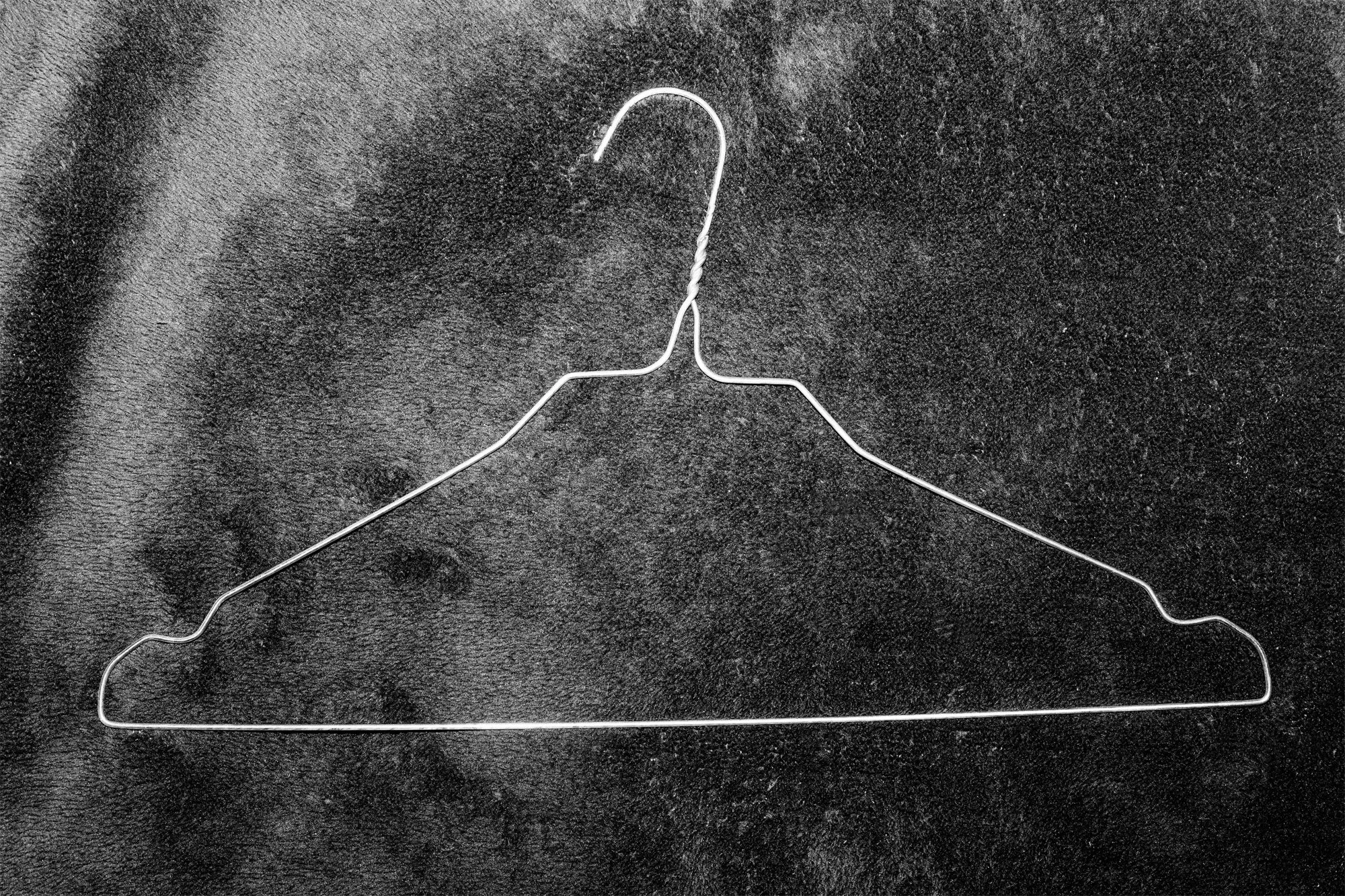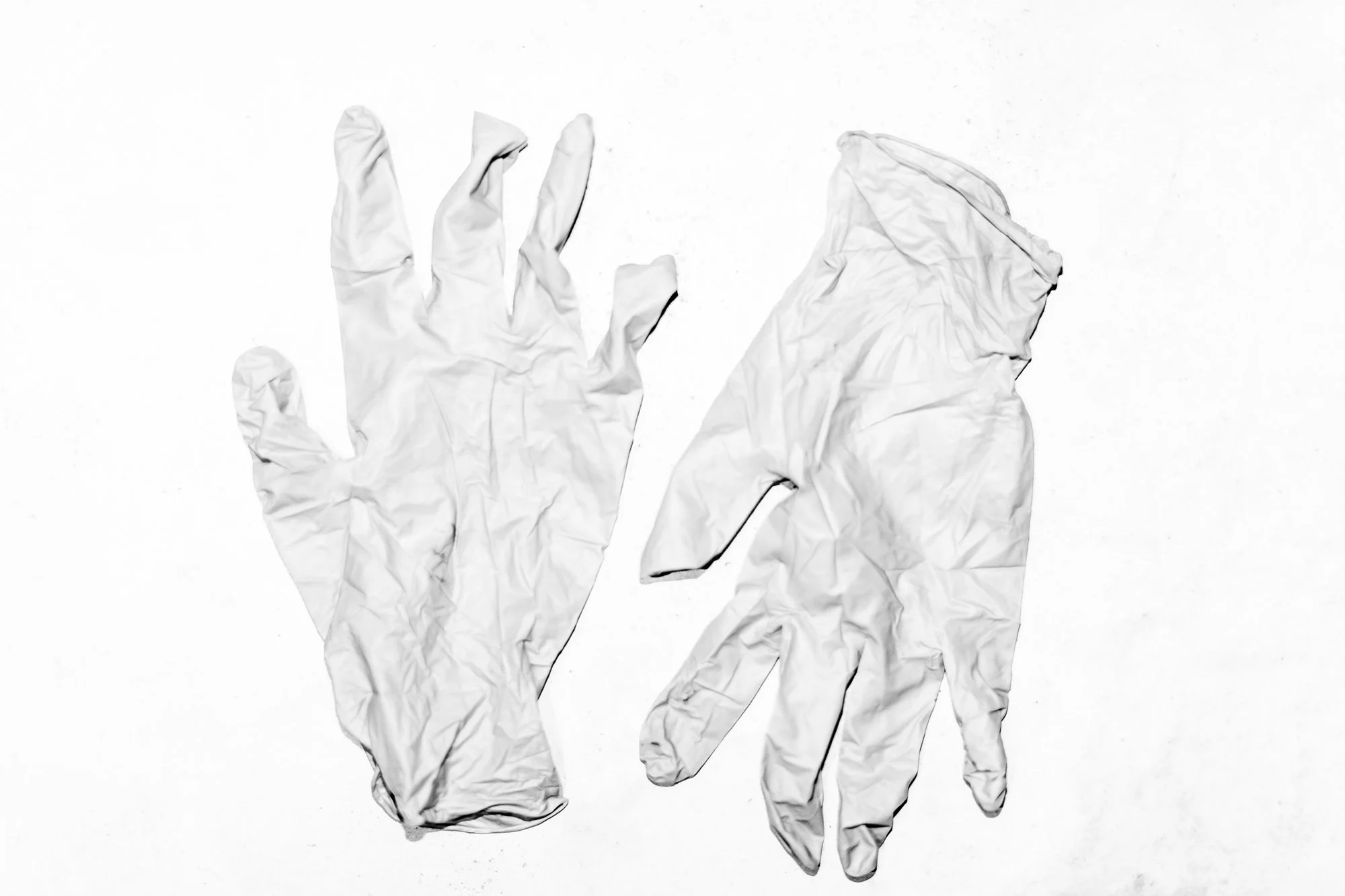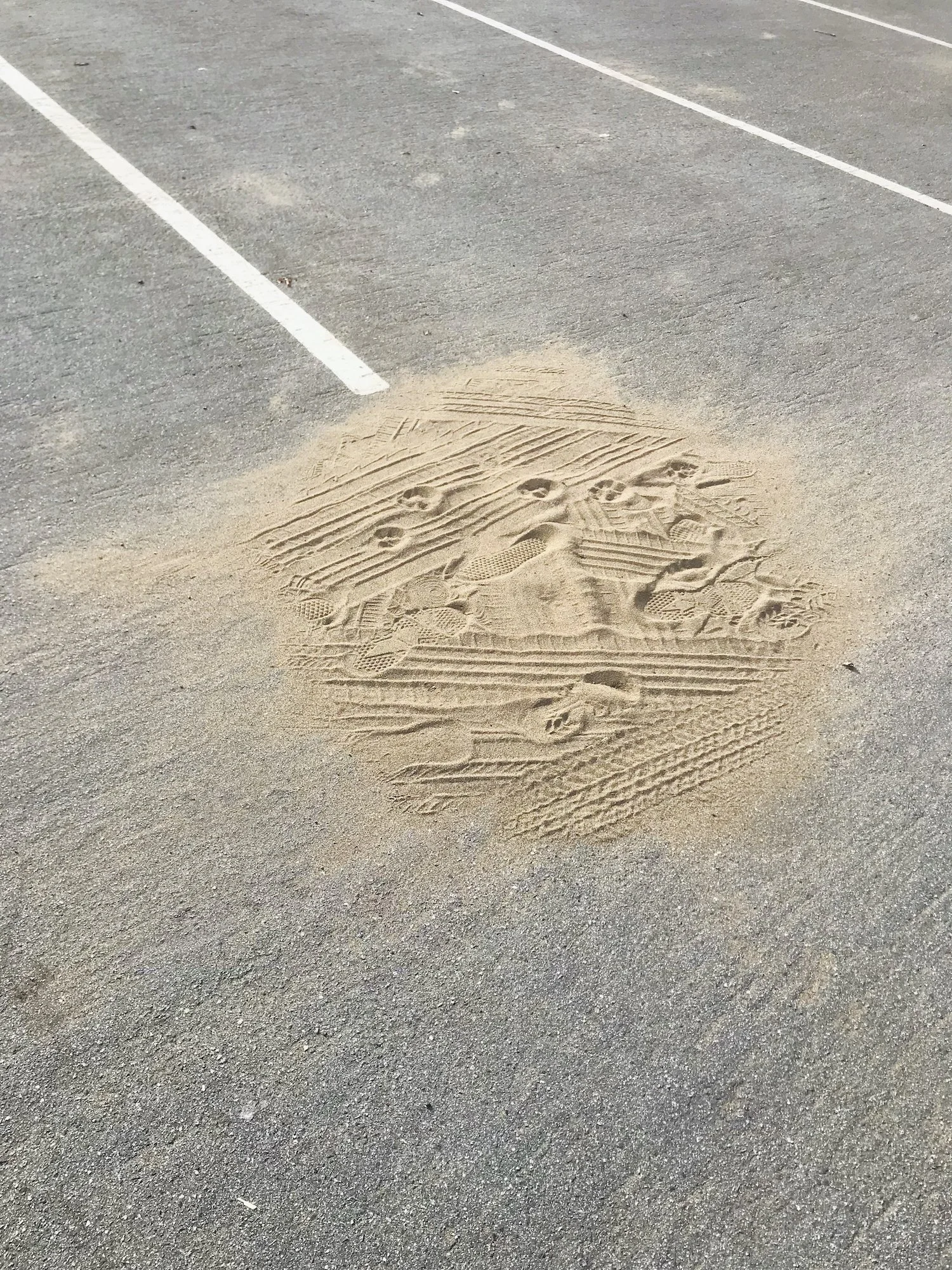Laia Abril: Another Trigger
Artist Portrait by Mahala Nuuk, 2019
Gabrielle Keung: Hi. I just want to congratulate you on the work that you've done and the success that you have. So, if we can just jump right into the meeting: what are your thoughts on misogyny since it is the overarching theme of your project?
Laia Abril: Well, I mean the tradition of feminism where I come from was never really strong, at least in my environment. So when I arrived at these topics, it was quite organic and basically I only have interest in things that were happening to someone that looked like me or they were surrounding my own experiences. So it was a slow process to get to understand that everything that I was doing actually was political. Even just wanting to read about stories that impact people that look like me. So it's very different obviously since then to now, even since I started to this moment specifically, especially how the world is right now, it's obvious it is changing as well. But for me it was always a strange feeling of not understanding why – why, why why has this happened or why is this not happening to me? So everything came from there and then slowly, thanks to the work at the same time was evolving as my political views were evolving, until the point that I am now. And, obviously it's a very big problem, which I devote my life to. So it's something that I believe also holds the key to the solutions that we will hopefully one day tackle – in a sense of equality as human beings, but also for the environment and for the system that we are part of.
Laia Abril, A coat hanger (On Abortion), Courtesy of the artist.
Gabrielle Keung: So would you say that understanding misogyny is one of the ways to find a solution to it?
Laia abril: Well, it is for me. I read your questions about activism and I know the concept of activism right now is very different in the States than in Europe, especially the recent understanding of it. I don't identify or consider myself an activist, in the sense that I work with activists who actually work as activists. And I believe it's a very different project, a different role that I want to have. Everything that I do obviously has a political intention, I do political art, but there is something that is different for me because it's very much for myself. Obviously it has some implications and I would love that to happen, and that's one of the goals. But at the end of the day, why I do the projects and how I do the projects are very much connected to myself. And one of my needs was to understand why this happened. So I do believe, for me, that was a solution. I'm not sure it's a solution for me socially per se, but it gave me some peace to understand why this is happening and where are they coming from. That's a historical perspective.
Gabrielle: Okay.
Laia: And obviously there is some sort of, hopefully, repercussion in the sense that it helps others when I share it with them. But the solution, it might be a little bit more complex. And I do believe activists are on it and I am happy for that.
Gabrielle Keung: Yeah, thanks. And what was the local news story about a gang rape in Spain that motivated you to start this project?
Laia Abril, Case 2 Cambodia, On Mas Hysteria, 2022, Courtesy of the artist
Laia: This is interesting because in both chapters, even though they're quite global, and I didn't really live in Spain while doing them, and I pretty much connected to the world in which I was working, from that perspective it's always something when it happens close to you, and the fear that triggers you. It gets stronger. So, for abortion there was a news that basically the right wing party of Spain wanted to make abortion more restrictive, and that was one of the first times that I realized that that right for me was in jeopardy as well. And with the second chapter as well, it was happening on a global level, with the Me Too movement and the Harvey Weinstein case, and that was on the news. But then in Spain it was a very famous case in which five men gang raped a very young woman during some very famous festivities in the North of Spain. And it already been on trial for a year and a half, and what sparked the whole thing was the sentence, the sentence was abuse rather than rape, even though they actually filmed the whole thing. Which is also quite interesting from my own perspective, because it's the pretty much the first time that we start to have visuals that depict rape that are not fiction or paintings or... So that was very, very, very strange-
Gabrielle: Disturbing.
Laia: ... because there it was used in the trial, the video was used in the trial just to show that she didn't show enough elements of struggle to consider that rape. So it kind of worked against her, which is ridiculous.
Gabrielle: Yeah.
Laia Abril, Mulier Taceat in Ecclesia (On Rape) 2019, Courtesy of the artist
Laia: So everybody got into the streets, which wasn't really common that a large number of women were protesting when it was not Women's March or all those kinds of situations. And it lasted a week. So for every day during the week, everybody was in the streets. So what it triggered actually was not the rage or the anger towards what happened, which was already terrible. It was towards the institutions that had failed us. That the constant failures, of the police, the media, the policies, the justice system, drove the project because it was like, okay, on one hand this happens. But I think as a society we have some responsibility for that not to happen, but also afterwards to take care of the victims and the survivors. The Harvey Weinstein case was also another trigger in the sense that for the first time I was seeing in covers of mainstream magazines, people and victims of violence, sexual violence. But then I realized it was a lot of pressure, again, to be at the center of attention and having these hundreds of millions of people judging you again, like it is a second trial.
Gabrielle: Right.
Laia: So I feel as a visual maker, I'm not saying we don't have to portray them and I know they were willing to be photographed, but that I find we have a responsibility to switch the focus from the victim to the institution, so we can give them a break and they don't have to hold the evidence in their body of what happened. (so they do not have to prove that they were raped, victims of sexual abuse for the second time in the court public opinion.)
Gabrielle: Right. Wow, that's really powerful. Thank you. And what are your thoughts on the overturning of Roe V Wade in America, where access to abortion has been restricted and limited in certain states?
I find we have a responsibility to switch the focus from the victim to the institution
Laia: So, I started researching for the project in 2015, it was pre-election in the US. In the Trump campaign you could already see some signs. There's this famous interview about him being asked about if women should be punished or not. But it has to be, if I am honest, we did see this coming. It didn't surprise me that much because states were already trying their best to restrict access. And this is an interesting aspect about access. Access is not only a law, but it could also be many, many different ones that they were putting in place or many difficult... As you well know, even making you look at the ultrasound or closing the clinics, or forcing you to wait three days or this kind of... That was already in place in many states. So for me, those situations already made the book somehow, already before. And I talk about it, how the states didn't have that green access as it was shown in the map, because of this state. But you never want these things to become true. And obviously it was a shock, and the problem is you have a system with the laws that could become very permanent and very difficult to reverse, which is not always the case in every country. And obviously also we (America) hold the torch of freedom and liberty, when other countries will take that as the way to go and that's a big responsibility that is affecting everybody in the world. And that has a potentially very, very big problem beyond what's already terrible happening in the States, to be honest.
Gabrielle: I agree. Thanks. Was it difficult for the women whom you interviewed to recount harrowing experiences in their lives?
Laia: This is different in every case. On abortion it's quite, quite different in general. I focus on women who, for them, it was very clear what they wanted to speak about, and have some activism behind. Or there was some peace that they made with everything. So some of them I would say didn't struggle much just thinking about it, some did more, but that's depending on the person. Rape is a completely different experience. And obviously one of the things that was more important for me was to not retraumatize people. What I tried was to be in contact with experts – it could be from a doctor, a psychologist, even someone like a humanitarian or another journalist or a lawyer who really, really knew all the people, all the people involved, all the context, all the cultural social context, including the language. So that for me was a very helpful way to not ask the questions in the way that could be retraumatizing, which I learned how to do it now, but it was a part of the learning process, because I'm trained as a journalist, but we don't really get trained on this which is very, very fascinating. Because you don't know what's going to happen after that person shares their stories. So I always try to find people who know they have some sort of support system, and to a certain point that I can know (they’ll be okay). But yeah, I'm extremely grateful to them for sharing such difficult experiences. That said, in the book, you don't find people speaking about the sexual crime, they speak about what happens after. For example, you have this mother whose four year old daughter was abused by the doctor, which is one of the most terrible stories in the book. And she is talking to me for two, three hours, only speaking about how no one believed her, the people in the school, the people in the village, in the city, the neighborhood. So it's about institutional failure as the second crime, but I've never asked her to, or in her case, or other cases, to be detailed about the attack or anything because that's not what I look for. So in a way it's slightly less likely to be retraumatizing.
Gabrielle: Right, thank you. The patriarchy ties a woman's femininity to her sexuality and her body, from her ability to get pregnant to preserving her virginity. What are your thoughts on this?
Laia: I was reading this question and it's interesting, because literally that's in a way the original idea of misogyny. Misogyny was the way of controlling women throughout history. So the first one, it was the reproductive system. And then you mentioned the virginity aspect, which I found it very, very nice, because obviously we talk about rape, but this is a very nice way to link both (rape and abortion), because obviously I talk about how they're connected. The last one, the third one that I'm doing, is about hysteria. So it's about controlling women.
Laia Abril, Merkin (On Rape) 2019, Courtesy of the artist
Gabrielle: Women’s minds.
Laia: It's actually mass hysteria. So it is a turn on the typical historical perspective, but still very much connected to how the medical, especially the mental health, medical community, as a society we have been using behaviors that were not the ones we were expecting in order to control the other. So yeah, this is basically the fundamentals of the project. And for me it's fascinating to see how they are connected. To also see how we do apply them in other communities, and the power of understanding that at the end of the day, abortion specifically is a political topic, it's a demographic topic. It always has been, it was born as that. It was born as, okay, we want the population to not decrease, we need people to go to the military, to go to war. And in medieval times it was put into the church to do the dirty job, because the kings didn't want to lose that kind of image they have.
Gabrielle: Yeah. Thank you. How important is it for women to have a platform or a forum, like your books and your work in exhibitions, to tell their stories? And what do you hope to achieve by creating this space for them?
Laia: I always say the same story, but I remember, I don't know which year it would be, but maybe, I don't know, 2010 or something like that, that I would try to talk about these stories, or even stories that were a little bit more approachable in a way, to magazines at that time. And magazines would always have this, like, "Why you don't try Marie Claire, why you don't go to Vanity Fair?" And I have absolutely nothing, I have worked with women magazines and I think some of them are incredible, but my point was why I only get to speak to half of the population, who actually do not hold the power to change the same laws or same problems that are great in these stories that I want to talk about? So it was very important for me. Not only that we were talking about it, that a woman was talking about it, that they could have these voices represented, but it also was heard by men. So that was the second part that for me was really important. And it still is. I think with all the Me Too and the fourth wave of feminism, and I always get these questions about if things are getting better, and they are and they are not in the sense that the most that we take this, we take the stories, we push from our side, the more they would push from that side (the more men are going to push against women). We are seeing it. I was with it the other day, this was the year of many more anti-trans laws being written in the States. And that's what happens, that you have a reaction. So it's getting better because it's getting worse, but because it's getting worse, it's more important than ever to keep doing it. And I'm having these voices there and it's not anymore about knowing only about what's happening, but it's also creating this present history in which we have a constant reminder that we have to continue the work, otherwise it's going to get worse.
Laia Abril, Two Fingers Test, Testing Virgins (On Rape) 2019, Courtesy of the artist
Gabrielle: Yeah. Great. Thank you. What are your artistic influences, or just people that have inspired you?
Laia: So many. Actually I just co-curated a magazine in Europe called The Eyes, it's a very interesting magazine. They have a topic for every issue, and we chose care and aftercare as an issue. So it was a reflection on contemporary artists who are tackling this subject. But also I did a part that was based on my inspirations and my research, which is very long. It's quite nice to tackle it. And I was thinking about what we have featured, just to answer your question, and I'm lately very much obsessed with a Mexican artist called Teresa Margolles.
Gabrielle: Yeah. Great. Thank you so much for your time. I had a lot of fun. Thank you.
Laia: Fantastic. Thank you.
Gabrielle: Have a great rest of your day. Bye. Ciao.
Laia: You too, ciao.













